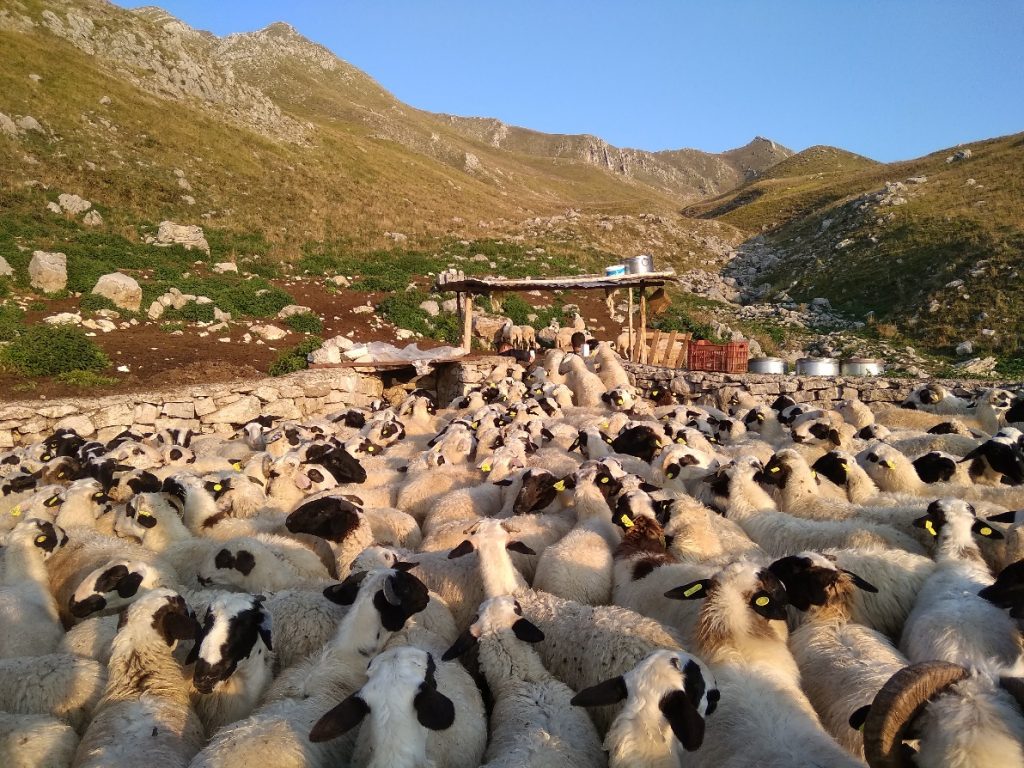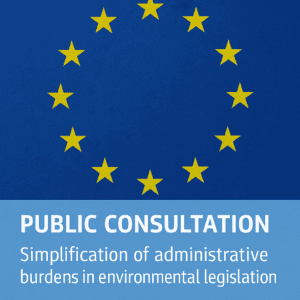To BCL (επικεφαλής του εργαστηρίου) υποστήριξε την ανοικτή δήλωση που αντιτίθεται στην υποβάθμιση της προστασίας του λύκου στην Ευρώπη. Η επιστημονική δήλωση είναι διαθέσιμη εδώ. Στάλθηκε στις 30/11/2024 στον Γενικό Γραμματέα της Σύμβασης της Βέρνης σχετικά με την πρόταση της ΕΕ για υποβάθμιση της προστασίας του λύκου στην Ευρώπη.
Οι λύκοι επιτελούν ουσιαστικό σταθεροποιητικό και υγειονομικό ρόλο στο οικοσύστημα, αποτρέποντας τους πληθυσμούς άγριων θηραμάτων να αναπαράγονται πέρα από τη φέρουσα ικανότητα του περιβάλλοντός τους, στοχεύοντας αδύναμα και άρρωστα άτομα. Συμβάλλουν στη μείωση των συγκρούσεων μεταξύ οπληφόρων και οχημάτων [1], μειώνουν τις ζημιές στις καλλιέργειες που προκαλούν τα αγριογούρουνα και αποτρέπουν την υπερβολική βόσκηση των άγριων οπληφόρων όπου υπάρχει μεγάλος πληθυσμός τους, με αποτέλεσμα υγιέστερα, πιο ανθεκτικά δάση με περισσότερα είδη και μεγαλύτερη δυνατότητα αποθήκευσης άνθρακα [2]. Επιπλέον, οι λύκοι συνεισφέρουν σημαντικά στην επιβράδυνση της εξάπλωσης των ζωονόσων, απομακρύνοντας τα άρρωστα θηράματα και έχει αποδειχθεί ότι μειώνουν τη μετάδοση και τον επιπολασμό των λοιμώξεων [3-4-5-6]. Ο λύκος δημιουργεί αναμφισβήτητα σοβαρά προβλήματα στην κτηνοτροφία. Είναι σημαντικό όμως να επισημανθεί ότι οι λύκοι σκοτώνουν ετησίως 65.000 ζώα, κυρίως αιγοπρόβατα στην Ευρώπη, τα οποία αντιπροσωπεύουν το 0,065% του συνολικού πληθυσμού αιγοπροβάτων της ΕΕ [7]΄.
Παρά τις έντονες αντιδράσεις της επιστημονικής κοινότητας και της κοινωνίας των πολιτών σε όλη την Ευρώπη, στις 3 Δεκεμβρίου 2024, η Επιτροπή της Σύμβασης της Βέρνης ψήφισε υπέρ της αποδυνάμωσης της προστασίας του λύκου. Λόγω της έλλειψης επιστημονικής αιτιολόγησης και των διαδικαστικών σφαλμάτων έως την κύρωση της απόφασης, στις 9 Δεκεμβρίου 2024, έξι οργανώσεις από όλη την Ευρώπη κατέθεσαν νομική προσφυγή στο Ευρωπαϊκό Δικαστήριο για να ζητήσουν την ακύρωση της απόφασης του Ευρωπαϊκού Συμβουλίου για την υποβάθμιση του καθεστώτος προστασίας του λύκου.
Η έρευνα που επιτελέστηκε στο BCL για τη μείωση των συγκρούσεων κτηνοτροφίας-λύκου μέσω διδακτορικής διατριβής (Δρ. Μαρία Πετρίδου) κατέληξε σε σαφή συμπεράσματα για την εφαρμογή μέτρων ενίσχυσης του κτηνοτροφικού κλάδου, ο οποίος βρίσκεται σε μεγάλη ύφεση στην Ελλάδα. Οι προτάσεις κοινοποιήθηκαν στο Υπουργείο Αγροτικής Ανάπτυξης και την Ευρωπαϊκή Επιτροπή για την αναμόρφωση της Κοινής Αγροτικής Πολιτικής στην Ελλάδα. Με τα κατάλληλα μέτρα και την ουσιαστική στήριξη της Ελληνικής Πολιτείας στον κτηνοτροφικό κλάδο (π.χ. επιδότηση βοσκών, κάλυψη ετήσιων εξόδων διατήρησης ποιμενικών σκύλων, κάλυψη των εξόδων βελτίωσης ορεινών εγκαταστάσεων) θα μπορούσαν να μειωθούν πολύ οι ζημιές στο κτηνοτροφικό κεφάλαιο. Άλλωστε, η έρευνα έδειξε πως οι κτηνοτρόφοι θεωρούν τα οικονομικά προβλήματα του κλάδου όπως τη χαμηλή τιμή του γάλακτος πολύ μεγαλύτερο πρόβλημα από την παρουσία του λύκου. Επομένως, οι λύσεις για την ορεινή ελεύθερη κτηνοτροφία εντοπίζονται στη βελτίωση των επαγγελματικών συνθηκών των κτηνοτρόφων, στην αύξηση του εισοδήματός τους μέσω καίρων διαρθρωτικών αλλαγών στον πρωτογενή τομέα ως προς τη διάθεση των προϊόντων παρά στην ελεύθερη θήρευση του λύκου.
[1] Raynor J.L., Grainger C.A. & Parker D.P. (2021) ‘Wolves make roadways safer, generating large economic returns to predator conservation’, Pnas, 118 (22). https://doi.org/10.1073/pnas.2023251118
[2] ‘Rewilding: a serious candidate for stabilising the global climate.’ (2023) The Global Rewilding Alliance, Briefing. Online
[3] Tanner E. et al. (2019) ‘Wolves contribute to disease control in a multi-host system’, Scientific Reports, 9:7940. doi: 10.1038/s41598-019-44148-9
[4] Find’o S., Rigg R. & Skuban M. (2002) ‘The wolf in Slovakia’. Online
[5] Szewczyk M. et al. (2021) ‘Evaluation of the presence of ASFV in wolf feces collected from areas in Poland with ASFV persistence’, Scientific Reports, 13 (10). doi: 10.3390/v1310206
[6] Using Wolves as First Responders Against a Deadly Brain Disease. (2020) The New York Times. Online
[7] Blanco J.C. & Sundseth K. (2023) ‘The Situation of the Wolf (Canis lupus) in the European Union — An In-depth Analysis’. A report of the N2K Group for DG Environment. European Commission. doi: 10.2779/187513
The downgrading of wolf protection in Europe is wrong
BCL (Head of the Lab) supported an open statement opposing the downgrading of grey wolf protection in Europe. The scientific statement is available here. It was sent on 30/11/2024 to the Secretary General of the Bern Convention regarding the EU Proposal to downgrade the protection of the Grey Wolf in Europe. A number of 412 scientists signed the statement.
Wolves perform essential stabilising and sanitary roles, preventing wild prey populations from reproducing beyond the carrying capacity of their environments by targeting weak and sick individuals. They help reduce ungulate-vehicle collisions, [1] limit the damage to crops caused by wild boar and, by keeping deer on the move as well as reducing their numbers, wolves prevent over-browsing, resulting in healthier, more resilient forests with more species present and more stable carbon storage [2]. In addition, wolves are particularly adept at slowing the spread of zoonoses by removing sick game and scavenging infected carcasses, and have been shown to reduce the transmission and prevalence of infections in multi-host systems of tuberculosis [3] classical swine fever (CSF) [4], ASF [5]. and chronic wasting disease (CWD) [6].
While the wolf’s return does undeniably pose new challenges, especially for livestock farmers, it is important to point out that the 65,000 livestock, largely sheep, killed annually by wolves represent just 0.065% of the EU’s total ovine population [7].
Despite strong opposition from the scientific community and civil society across Europe, on 3rd December 2024, the Bern Convention Standing Committee voted in favour of weakening the protection of the grey wolf. Based on the lack of scientific justification and procedural faults, on 9th December 2024, Green Impact and five organisations across Europe submitted a legal appeal to the European Court of Justice to seek the annulment of the European Council’s decision on downlisting of wolves.
The research carried out at BCL on reducing livestock-wolf conflicts through a PhD thesis (Dr. Maria Petridou) came to clear conclusions on implementing measures to support the livestock sector, which is in a severe recession in Greece. The measures were communicated to the Ministry of Rural Development and the European Commission to reform the Common Agricultural Policy in Greece. With the appropriate measures and substantial support from the Greek State to the livestock sector (e.g., subsidies for shepherds, coverage of annual costs of maintaining herding dogs, and coverage of the costs of improving mountain facilities), the livestock losses could be greatly reduced. Besides, the survey has shown that farmers consider the milk price a bigger problem than the presence of wolves. Therefore, the solutions for free-range mountain livestock farming lie in improving the professional conditions of livestock farmers and increasing their income through radical structural changes in the primary sector in terms of product marketing rather than in the free hunting of wolves.





